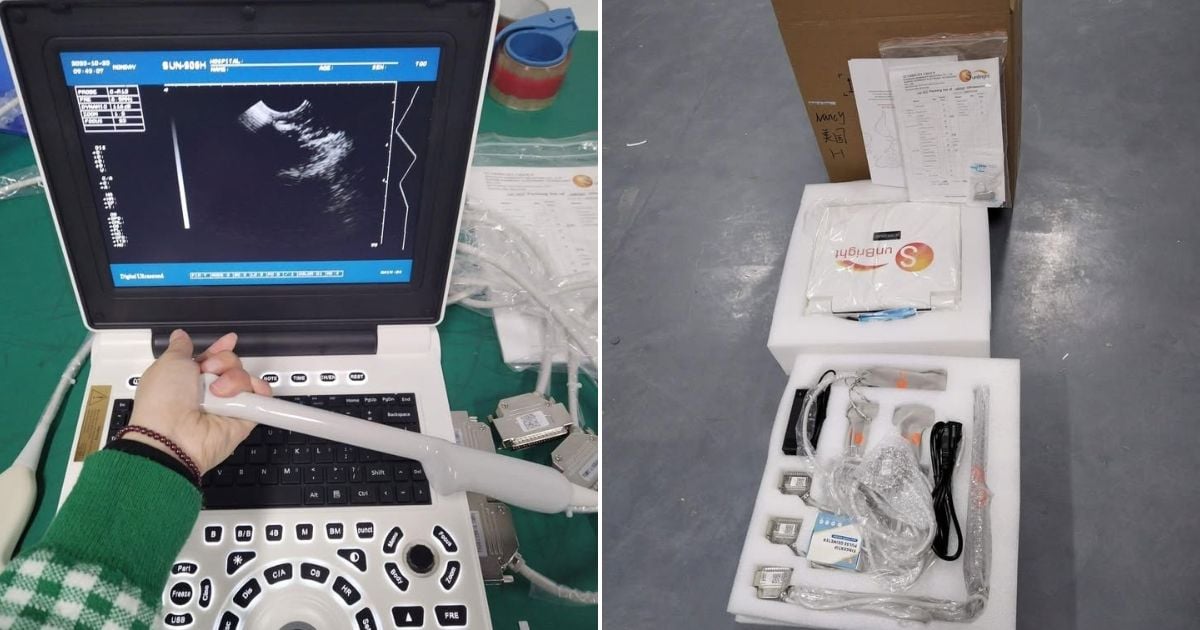In the rural areas of Río Cauto within Granma province, two communities have recently seen improvements in their access to healthcare. This progress is thanks to a generous donation of two ultrasound machines by a Cuban living abroad, known on social media as Robert Ayuda.
In a heartfelt Facebook post, the donor revealed that these machines were actually delivered over two years ago. However, the donation was kept under wraps because, as he stated, “we always did it from the heart, quietly, without seeking applause.”
One of these ultrasound machines was assigned to the clinic in Vado del Yeso, marking a significant change for the hundreds of residents who can now obtain medical examinations without leaving their area. The second machine was allocated to the extended clinic in Grito de Yara, where it has also significantly enhanced diagnostic capabilities and improved the quality of life for numerous families.
While this generous act has undoubtedly enhanced medical care in these regions, it raises a crucial question: Why does an essential service like this rely on the kindness of Cuban expatriates rather than a government that claims to have one of the world’s best healthcare systems?
The donor quoted his late mother, Nieves, saying, “We should give what we have, not what’s left over.” Her legacy of compassion inspires his work, which he describes as a heartfelt promise fulfilled. “She taught me that when you help with your soul, you don’t need a stage, or fame, or recognition,” emphasized the Cuban, whose goodwill fills the void left by the regime.
Additionally, he expressed gratitude to Dr. Eudecel Vilche, director of the Vado del Yeso clinic, for his dedication and commitment to the community. “His intelligence, effort, and love for his people have turned each donated resource into a true transformation,” he remarked.
Despite this, government officials like José Manuel Rodríguez Valdivia—a self-identified government employee in Río Cauto on Facebook—have attempted to portray this donation as a triumph of the system. His post lauds the medical services as “renowned for their excellence,” crediting state personnel's commitment. Yet, it is clear that none of this would have been possible without the altruistic gesture of a Cuban emigrant who compensated for institutional deficiencies with tangible resources in two overlooked communities.
The persistent inadequacies of Cuba’s healthcare system are highlighted by events that underscore a structural crisis, where citizens have to compensate for the State’s shortcomings. In Havana, locals pooled resources to buy a generator for a clinic, due to frequent power outages hindering basic medical procedures. This community-driven initiative, born out of necessity rather than state strategy, reveals the decline of healthcare infrastructure and institutional neglect of essential services.
Simultaneously, another concerning issue has emerged in the eastern part of the country: the black market has infiltrated a blood bank’s operations, with accusations of diverting critical life-saving resources. Although official media attempts to downplay the situation, the evidence points to a system unable to ensure even the legal and safe supply of blood.
Understanding the Healthcare Challenges in Cuba
How did the rural communities in Granma Province improve their healthcare access?
The healthcare access in rural communities of Granma Province improved through the donation of two ultrasound machines by a Cuban expatriate, Robert Ayuda. These machines were given to clinics in Vado del Yeso and Grito de Yara, significantly enhancing medical diagnostics and care.
What question does the donation of ultrasound machines raise about the Cuban government?
The donation raises the question of why essential healthcare services in Cuba depend on the generosity of expatriates rather than being fully provided by a government that claims to uphold an exemplary healthcare system.
What other challenges are facing the Cuban healthcare system?
Beyond the lack of resources like ultrasound machines, the Cuban healthcare system faces challenges such as the need for community-funded generators due to power outages and the involvement of the black market in essential services like blood banks.
